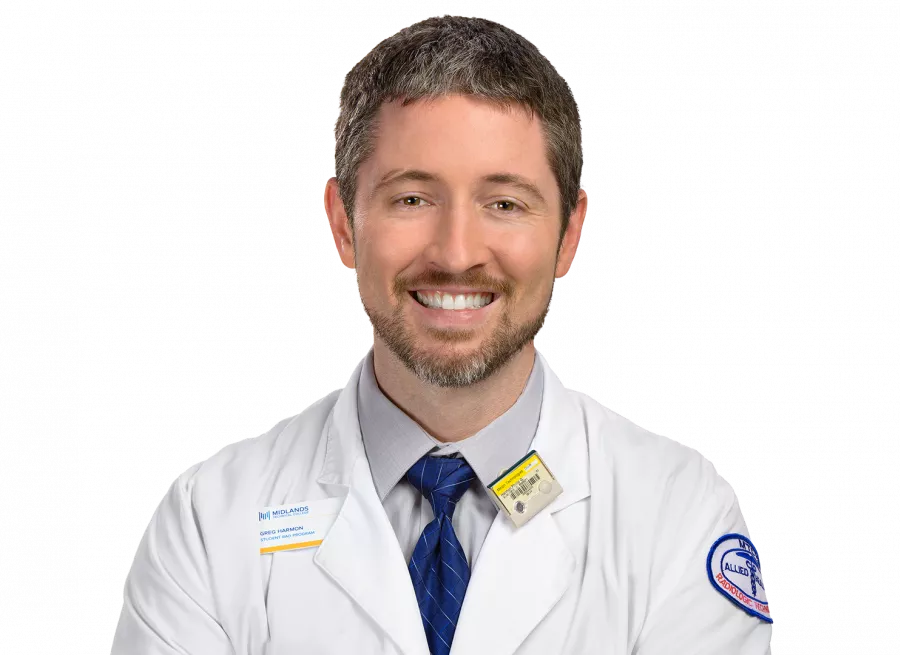Advanced Certification in Cardiovascular Interventional or Vascular Interventional Radiography
Academic Certificate
Overview
Interventional Radiography is an advanced certification leading to employment in the Cardiac Catheterization Lab or the Interventional Lab/Special Procedures Lab in Radiology. The program has twenty-five credits taken over two semesters. This area is at the top of the growth list for jobs in Radiology! Each week will contain three days of clinical rotations. Academic classes will be taught via zoom and or video recordings two days per week. This certificate is designed for the credentialed radiologic technologist to gain experience, skills, and academic knowledge to pass the A.R.R.T. national board examination in Cardiovascular Interventional (CI) or Vascular Interventional (VI).
Cardiovascular Interventional technologists work in the Cardiac Catheterization Lab. The lab is composed of a cardiologist, a team of nurses, and cardiovascular technologists. Together this team will do a wide variety of procedures focusing on the heart such as right heart catheterizations, left heart catheterizations, stents into the coronary arteries, ablations, Watchman procedures, etc.
The Vascular Interventional technologists work in the Special Procedures/Interventional lab in radiology. The team is composed of an interventional radiologist, interventional technologists, and a radiology nurse. This area will do a wide variety of procedures focusing on the vascular anatomy leading to the brain, abdomen, pelvis, and extremities. Obstructions, narrowing’s, stenting of all types, clot dissolves, and embolizations are completed. This team is highly specialized and works closely together.
These teams maintain an “on-call” schedule to meet the growing demand of heart events and traumatic events occurring at all hours of the day and night. These technologists must be focused on details and extremely flexible to demanding schedules. They must maintain current CPR skills, and knowledge of EKG and pharmacology to assist the team as needed during the procedures. These technologists are in great demand and the future growth outlook is strong as more catheterization labs and interventional suites are being installed in hospital settings.
Sample Program Plan and Costs
Class Delivery Methods
View current courses offered via our online course directory.
| On-Campus | Traditional. Classes meet on campus. |
|---|---|
| Virtual | 100% online. Meets with a live instructor and classmates on specific days, at specific times. Uses web conferencing software, like Zoom. |
| Hybrid | Some classes on campus. Some classes online or virtual. |
| Online | 100% online. Due dates for projects and assignments. Self-paced work on your time. |
Full Time Schedule
| Semester | Course ID | Course Title | Classroom | Online | Hybrid | Virtual | Credits |
|---|---|---|---|---|---|---|---|
| Semester 1 (10 Credit Hours) |
RAD-114 |
Radiographic Imaging Fundamentals II Radiographic Imaging Fundamentals II ID: RAD-114 Credit Hours: 2 This course provides advanced instruction in primary and secondary influencing imaging factors and advanced imaging applications. |
2 | ||||
| RAD-236 |
Radiographic Seminar II Radiographic Seminar II ID: RAD-236 Credit Hours: 2 This course includes selected areas of radiography that require additional study or application. |
2 | |||||
| RAD-256 |
Advanced Radiography I Advanced Radiography I ID: RAD-256 Credit Hours: 6 This course includes independently performing routine procedures in a radiology department, including involvement in advanced radiographic procedures. |
6 | |||||
| Semester 2 (15 Credit Hours) |
RAD-210 |
Radiographic Imaging II Radiographic Imaging II ID: RAD-210 Credit Hours: 3 This course provides a detailed study of advanced methods and concepts of imaging. |
3 | ||||
| RAD-230 |
Radiographic Procedures II Radiographic Procedures II ID: RAD-230 Credit Hours: 3 This course is a study of special radiographic procedures. |
3 | |||||
| RAD-205 |
Radiographic Pathology Radiographic Pathology ID: RAD-205 Credit Hours: 2 This course provides a survey of disease processes significant to the radiographer, including etiology, diagnosis, prognosis, and treatment. |
2 | |||||
| RAD-257 |
Advanced Radiography I Advanced Radiography I ID: RAD-257 Credit Hours: 7 This course includes independently performing routine procedures in a radiology department, including involvement in advanced radiographic procedures. |
7 | |||||
| Total Credit Hours | 25 | ||||||
| Estimated Cost Financial Aid |
$5,100.00 Not including fees and equipment |
||||||
What’s next after I complete this program?
Enter the Workforce
With the current shortage of CI and VI technologists, those who successfully complete the program and pass the national board examination will be highly sought after for open positions.
